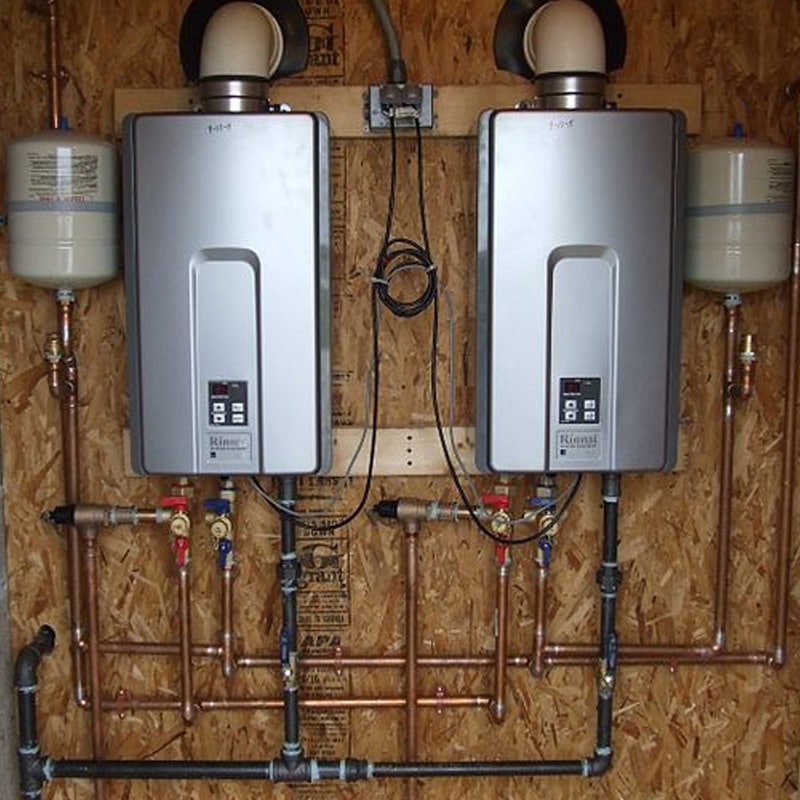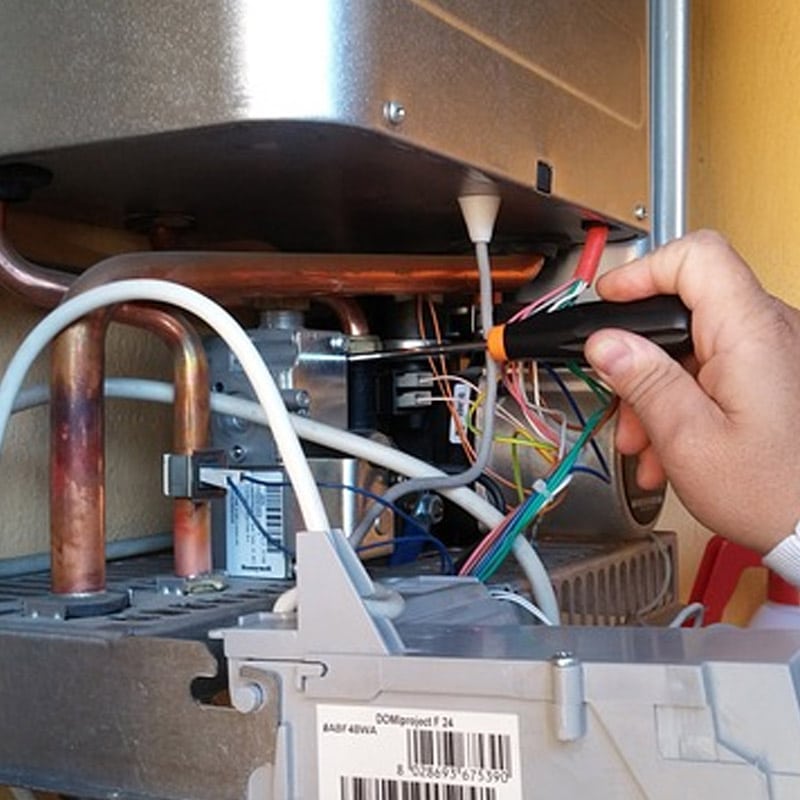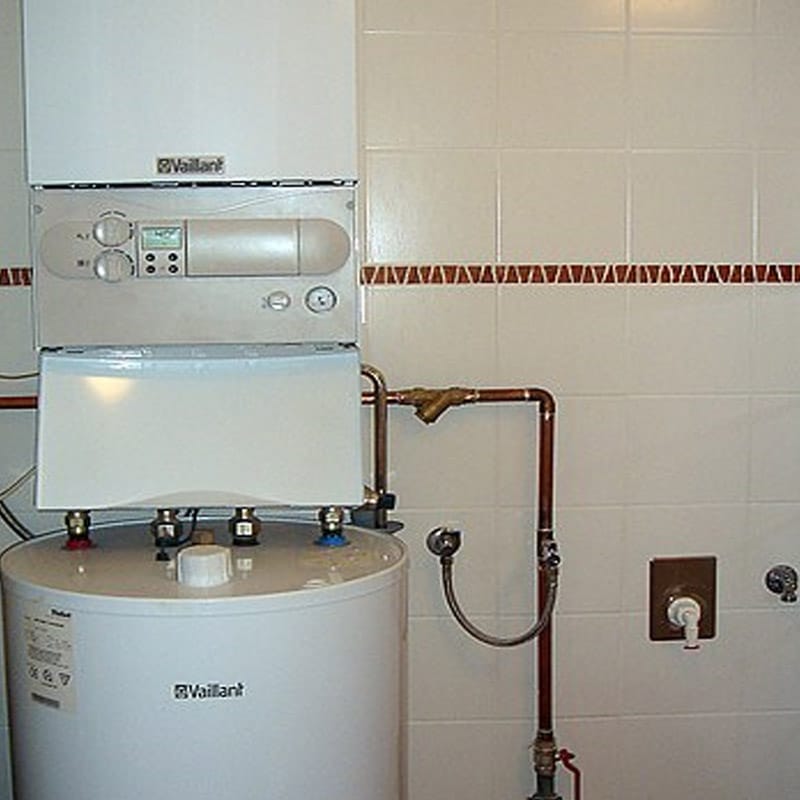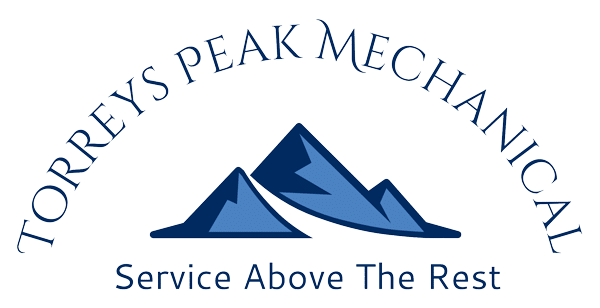Of the heating systems available to you, Denver CO hydronic heating is an energy-efficient way to comfortably warm your home. By using a system of tubes or pipes, this heating system runs hot water through the pipes throughout your home. Compared to furnaces and other forced air systems, hydronic systems offer better air quality and several other benefits within your home.

Let us install your next Denver CO Hydronic Heating system.
Also called radiant heating because of how it spreads heat, hydronic heating systems are popular in most U.S. homes. This heating system gives you better control over warming specific zones. Hydronic systems can also decrease your environmental impact because it uses hot water to spread the warmth. And, due to its efficiency, you may also notice a lower energy bill than other heating systems.
There are various designs and installations for hydronic systems. Regardless of which one you choose, Torreys Peak Mechanical can install it for you. And with our 30 years of experience in the Denver metro area, we can also handle its future repairs and maintenance. If you need to repair or install a new heating system, call Torreys Peak Mechanical today.
The Pros and Cons of a Denver CO Hydronic Heating System
Generally, there are two common types of heating systems: hydronic and forced air heat. They each have their benefits and drawbacks. If you’re considering a new system or upgrading, the decision will depend on your home, area, and preferences.
Benefits of a Hydronic System
When it comes to heating systems, one of the factors to look into is how efficient it is in heating up your home. Compared to forced air systems, hydronic systems take the win for efficiency. Not to mention, they take less energy to operate, so they hardly affect your energy bill compared to other heating systems.
And these heating systems operate quietly. Apart from the water heater or boiler heating the water, the rest of the system works almost silently. Compared to forced air systems, which use blowers to push heated air around, you almost won’t hear anything.
Speaking of pushing air around, the residents of homes that use forced air systems may notice more allergens in the air. That’s because forced air systems tend to be draftier, and the blowers may push particles through their systems. However, since hydronic systems only use hot water, extra dust and allergens won’t spread around your house.

We can repair or install your HVAC systems.
The Drawbacks of a Hydronic System
Although hydronic systems sound great, there are some factors that forced air systems are better at. For example, hydronic systems take longer to heat up since it takes time to heat the water and send it out through the pipes. Because of that, they’re better to keep at a consistent temperature, which makes it more difficult to adapt it to abruptly changing temperatures.
Generally, you’ll only be using this heating system during the winter. Since hydronic systems use water, they can potentially freeze during a power outage. Or, one of your pipes will burst because of the freezing temperatures.
On top of that, the pipework makes it difficult for repairs, installation, and retrofits. Since the pipes go beneath your floor, you’ll need to remove your flooring to get to the pipes or to install them. And if you want to install one of these systems into an older house, you may find yourself paying more than necessary to get everything working.
The Components of Your Typical Denver Hydronic Heating System
For the most part, most Denver CO hydronic heating systems have the same components. Each system starts from the boiler, which heats the water that flows through the rest of your system. Along with the boiler is a thermostat. This thermostat gives you control over the system, allowing you to turn it on or off or adjust the temperature.
After the boiler and thermostat is the pump, which pushes and circulates the water throughout the house. Within the piping system is the manifold, which is the hub for directing the water’s flow. At the end of its journey, the water goes to a heat exchanger, which transfers the water’s heat into the room.
There are various types of heat exchangers. Your house or community may have a different heat exchanger than your neighbor or someone across town. The system can use radiant flooring, a radiator, or baseboard heaters to effectively warm up your rooms.
- Radiant flooring – You can find these heat exchangers more often in new houses. Specialists put loops of pipes either inside concrete or beneath a thin layer of concrete. The concrete becomes part of the system as a thermal layer to evenly spread the heat in your home.
- Radiators – These are more common in older homes. However, new-age radiators work the same way their predecessors do.
- Baseboard heaters – Professionals will attach these heaters to walls, usually beneath your windows. The necessary pipes run inside your walls and require less tubing since they don’t run beneath your floors.
Contact Torreys Peak Mechanical

If you have questions about your boiler system, we can help.
With 30 years of experience under their belts, our technicians can install or repair your HVAC system for you. Once you choose the boiler you want, we can take it from there. Our technicians can install it for you and make sure that the pipework effectively warms your home, even during the depths of winter. Not to mention, we can also handle any future repairs or maintenance for you.
Heating systems generally come in two forms: hydronic and forced air systems. Depending on what you need, both are common in most U.S. homes. However, radiant heating systems tend to be more comfortable and efficient than other systems. They’ll make a great addition to your home.
If you’re having issues deciding on a heating system, we can offer suggestions and advice. Although we don’t offer any ourselves, our expertise can be the feedback you need. Call us or visit our location to learn more about the various heating systems you can choose today. We want you to be confident about the Denver CO hydronic heating system you choose for your home.
Denver, Colorado Fun Facts:
- When the first transcontinental railroad was routed through Cheyenne instead of Denver, the residents rose up to connect it to their own railway.
- Despite some problems and issues, the Denver Pacific came into being in 1870.
- With the new railways, the city became more prosperous with the intent of becoming one of the world’s greatest cities.
- For more fun facts, visit the city’s page.
